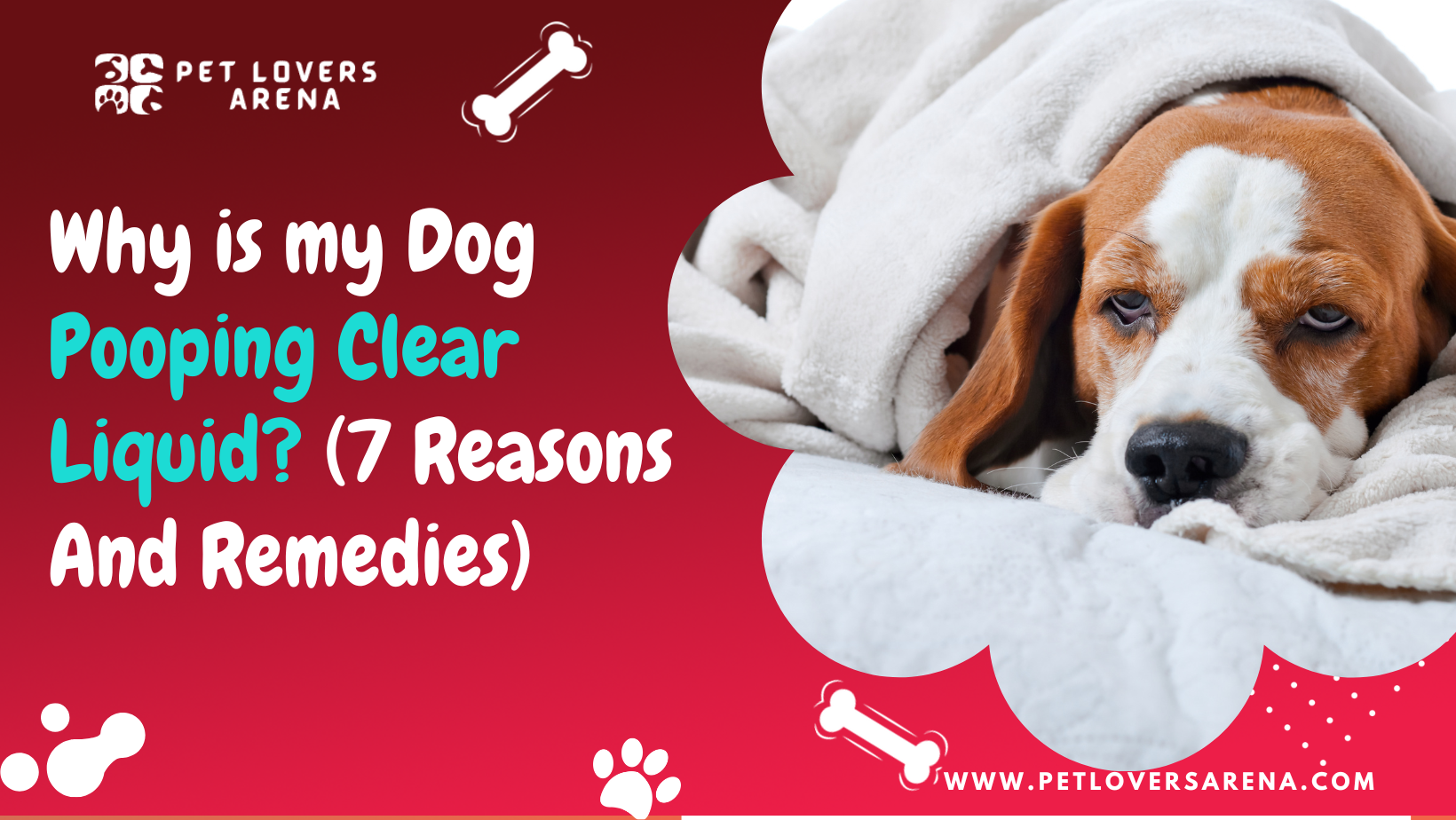If you notice a clear liquid or jelly-like fluid in your dog’s poop, it immediately raises many questions. Like, is there anything hinting at a condition that requires a vet’s attention? Should you take the dog to the vet when you notice a clear fluid in its poop and so on.
Well, there can be many reasons for this clear jelly-like fluid that you notice many times in your dog’s poop. To notice a small amount of clear fluid in the dog’s poop sometimes is normal, but if you notice the whole poop of your dog filled with mucus, you need to go to the veterinarian for help.
While many reasons for this clear mucus or fluid in the dog’s poop are normal, witnessing a lot of mucus can signify something serious. So, again, look into the article, and you will know why your dog has clear fluid in its poop, what you need to consider, etc.
Bonus Read: White Specks In Dog Poop: Causes And Treatment Solutions Guide
What Does The Mucus in a Dog’s Poop look like?
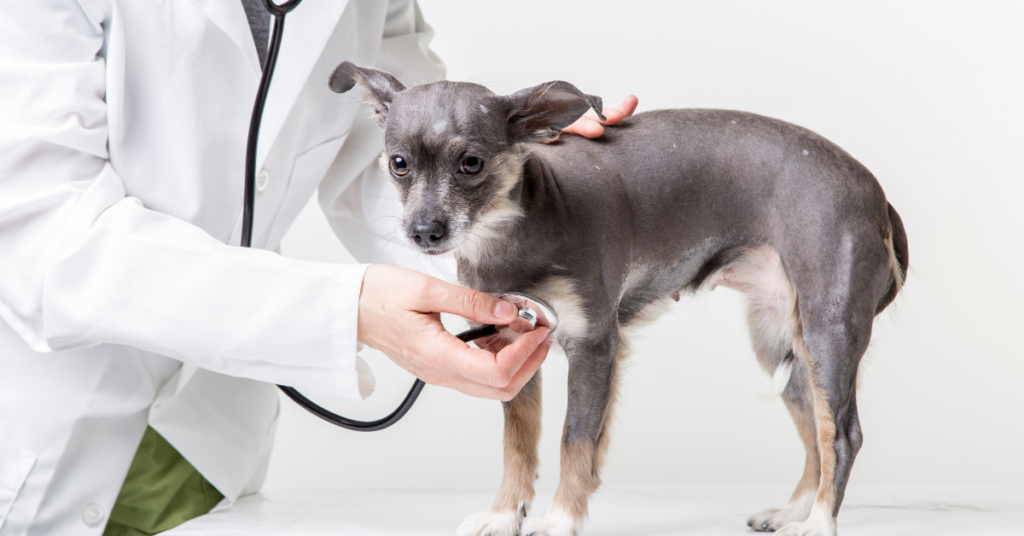
Most pet owners cannot recognize the mucus in the dog’s poop. Let’s know what the mucus looks like before knowing about the causes of this mucus in your dog’s poop.
The mucus mostly looks like a jelly or clear fluid covering the dog’s poop. This slime-like or jelly-like structure called mucus covers the dog’s poop and is sticky. You can see chunks of these greenish or colorless slimy jelly-like structures, especially if your dog has diarrhea.
Also, the mucus of your dog’s poop may come colored as already described above. Usually, white is the most common color of the mucus in a dog’s poop; however, you may also notice green-colored mucus in your dog’s poop.
The green color mucus in your dog’s poop can be due to bacterial infection or simple food coloring of the food that the dog has consumed recently.
You may also notice red or bloody mucus in your dog’s poop; this can be a sign of emergency or may only be due to food coloring. The red mucus in the dog’s poop can be a sign of blood vessels bursting in the dog’s last part of the gut, i.e., the colon. Now, this mucus can be a sign of rupturing blood vessels, straining, inflammation, etc., which is very common in diarrhea in dogs.
Is Mucus in my Dog’s Stool a Sign of Some Danger?
If you notice a bit of mucus in your dog’s poop, it is not a sign of danger, and you can treat it at home only. But remember, when you visit the veterinarian, you should talk about this to the vet during regular checkups also.
A frequent mucus in your dog’s stool can be a sign of danger and need immediate medical attention from the veterinarian.
Suppose you notice a lot of mucus in your dog’s poop or frequent mucus in your dog’s poop very recently. In that case, it indicates that the dog needs immediate veterinary attention, and you should look for an immediate appointment with your dog’s vet.
It’s best to contact the veterinarian if you have a young or old dog as they have a bad immune system. Also, don’t delay contacting the veterinarian if the dog has frequent issues. For old or young dogs, even a small decline in health can lead to various problems, and even the small changes should be communicated to the vet immediately.
Bonus Read: Why Does My Puppy Have Loose Stools At Night?
When can you treat the condition of mucus-filled stool at your home?
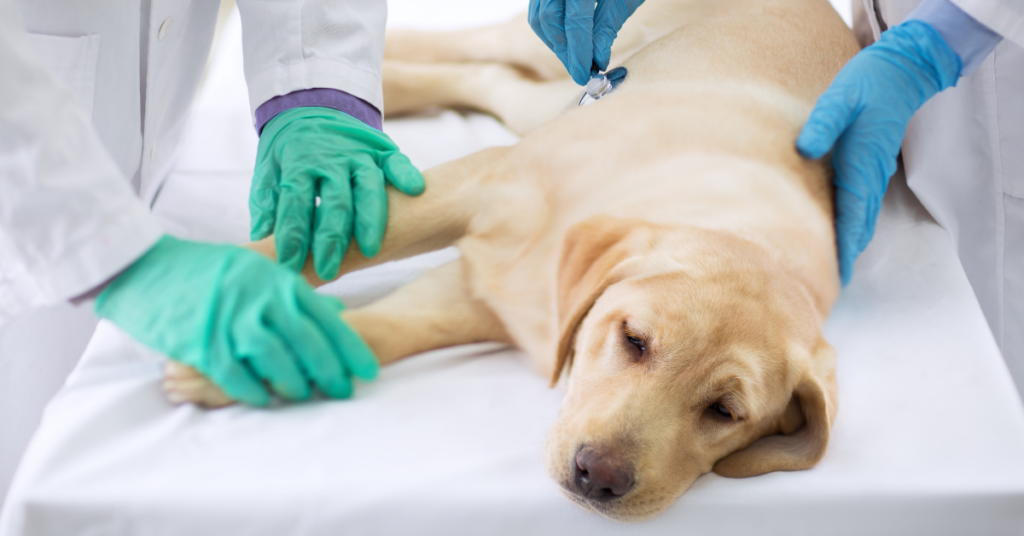
If you notice only a bit of mucus in your dog’s stool, rest all the things are good like eating well, no vomiting, no diarrhea, etc., means you can treat this condition at home. Here are the measures by which you can treat this disease in your dog at home only.
Probiotics
A mucus-filled stool in a dog’s poop with all the normal health conditions means the dog can have probiotics instead of treatment.
Look for probiotic supplements specially designed for curing dogs, or ask the veterinarian for recommendations.
Diet
Sometimes a change in a dog’s diet will help instead of treatment. For example, a good change in diet by adding digestible food items and more fiber to the dog’s food will help to treat the condition of mucus-filled stool in your dog more quickly.
The best foods you can add to your dog’s diet for a few days to help your dog recover quickly are boiled white meat chicken, white rice, and a teaspoon to a tablespoon of canned pumpkin.
Mucus is the inner lining of the dog’s intestine, and to notice a small amount of mucus in your dog’s poop is completely normal. The mucus lining in a dog’s intestine helps the feces move easily through the dog’s intestine.
Prolonged or excessive exercise is another cause of your dog’s mucus-filled stool. For example, studies have proved that 16 percent of sled racing dogs have mucus-filled poop during racing.
Mucus-filled poop suggests that the dog has suffered from colitis or large bowel inflammation recently. There are several other symptoms for dogs with colitis like straining, increased urgency, increased frequency of going to the washroom, loose stool, etc.
What Are The Reasons For Noticing Mucus in the Dog’s Poop?
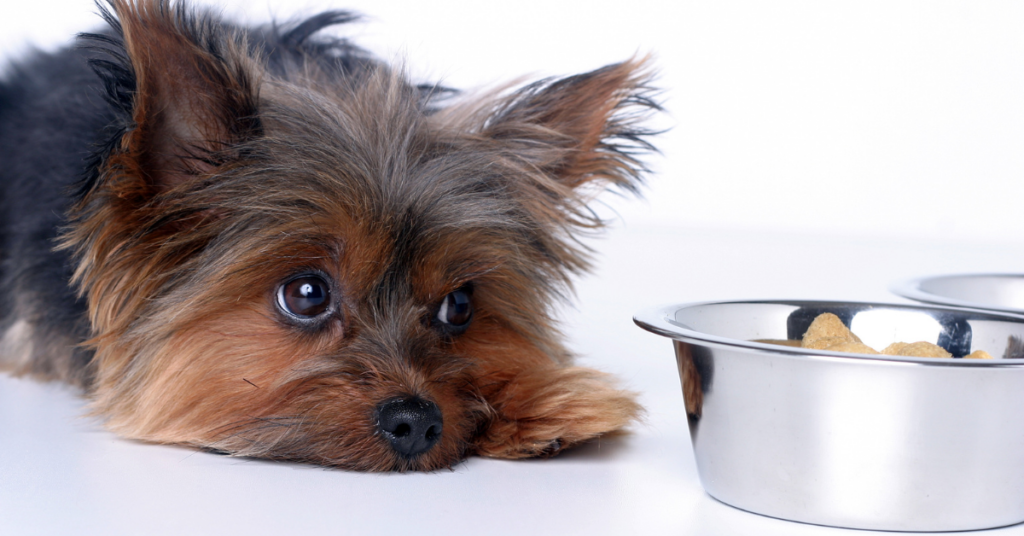
There are certain causes of colitis in dogs that leads to mucus-filled poop in your dog. These include:
1. Leishmania
This disease is a bloodborne disease mainly caused by sand flies. Leishmania is the reason for colitis, but it is rare as the most common symptoms include skin problems, nose bleeding, eye problems, weight loss, lethargy, etc.
2. Irritable Bowel Disease (IBD)
Dogs can also suffer from irritable bowel disease, which is a further reason for colitis. Colitis and mucus-filled poop are usually due to some protein that doesn’t get digested by your dog’s body.
Vomiting, reluctance to eat, and weight loss are other signs. Itchiness is also a sign of food allergy and can be seen in your dog, along with mucus in your dog’s stool.
3. Granulomatous Colitis of Boxer Dogs
This disease is proved as a rare disease that causes mucus-filled stool in dogs like boxers; along with this, you can notice weight loss, bloody stool, and other colitis symptoms.
In Granulomatous Colitis of Boxer Dogs, the dog’s intestine lining becomes thickened, ulcerated, and inflamed due to response to E.coli.
4. Stress
One of the main causes of colitis is stress, which causes the feces or food to move through your dog’s gut at great speed.
This high speed indicates that the food passing through the intestine doesn’t get digested properly, causing trouble for your dog as the bacteria will get more nutrition and lead to more mucus in its stool.
The stress due to recent fireworks or changes in the daily routine of your dog can cause your dog to have conditions like mucus-filled poop. These short periods of stress are responsible for the condition of mucus-filled stools in your dog.
5. Sudden Dietary Changes
If you run short of your dog’s food and decide to change the dog food for your dog, it can be the reason for colitis and can be troublesome for your dog.
Similarly, for those dogs who scavenge during the walk, this is common to see changes in the texture of your dog’s poop, like mucus-filled dog poop, etc.
Usually, it is normal for the dog to shift to their new diet and have an upset stomach; loose mucus-filled poop is also a sign of an upset stomach in your dog. Also, colitis in your dog is normal, but this results in mucus-filled stool in your dog. This mucus-filled stool will get back to normal after a few days naturally.
6. Parasite Infection
Diarrhea or loose stool with mucus is often due to parasitic infections caused to your dog by certain parasites.
Common culprits for these are whipworms and roundworms. Besides this, Giardia and cryptosporidium are the parasites responsible for dogs’ poop getting covered in mucus.
It is difficult for young puppies to get rid of these parasites, and if the puppies don’t respond to normal deworming medications, the situation worsens.
7. Bacterial infections
When bacterias reach the dog’s large intestine, it is more likely to cause inflammation and problems in your dog’s intestine. Common bacterias to cause inflammation or problems in bacteria are food-borne like Salmonella.
Many dogs can get this bacteria, Salmonella, responsible for colitis, from the food they eat. Still, those dogs who eat raw food are more likely to have problems with this bacteria. We can say those dogs who consume raw food are more likely to have Salmonella bacteria ingestion.
Apart from causing mucus-filled stool, these bacterias are also responsible for causing many health hazards to your dog. So immediate treatment of your dog is required.
Bonus Read: My Dog Just Ate A Mouse: What Should I Do Now?
When Should We See a Veterinarian After Noticing Mucus in a Dog’s Poop?
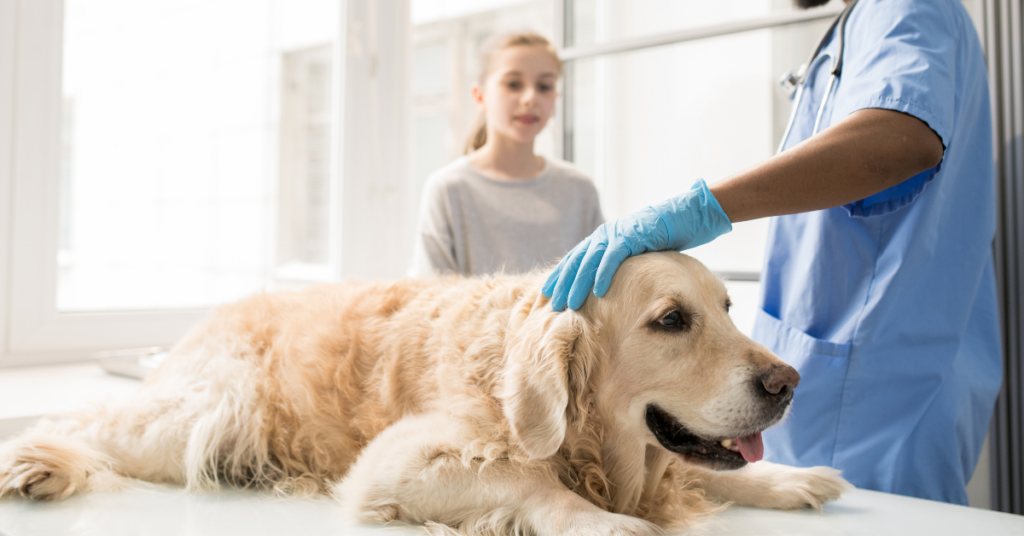
If you notice your dog having mucus in its poop for a couple of days, it is normal, but if this continues for many days, you need to seek help from the dog’s veterinarian.
Mucus-filled poop of your dog can be due to the diet change that your dog recently had, but if the mucus-filled poop doesn’t change in a couple of days or the case of diarrhea worsens with time, you should see a veterinarian for your dog immediately. As further delay may lead to the deterioration of your dog’s health, and this can also be fatal for your dog.
Whenever your puppy gets ill, you need to immediately go and see a veterinarian as the deteriorating health of your dog will result in dehydration and can be fatal for your dog.
Dogs that are suffering from other signs other than only colitis also need to see the veterinarian immediately. The signs that require the immediate attention of a veterinarian include:
- A large amount of blood during defecation
- Lethargy
- Black colored feces
- Weight loss
- Not eating for more than 24 hours.
Even if the dog is behaving normally and you see mucus in your dog’s poop, then you need to consider the veterinarian.
Treatment for Mucus in Dog’s Poop
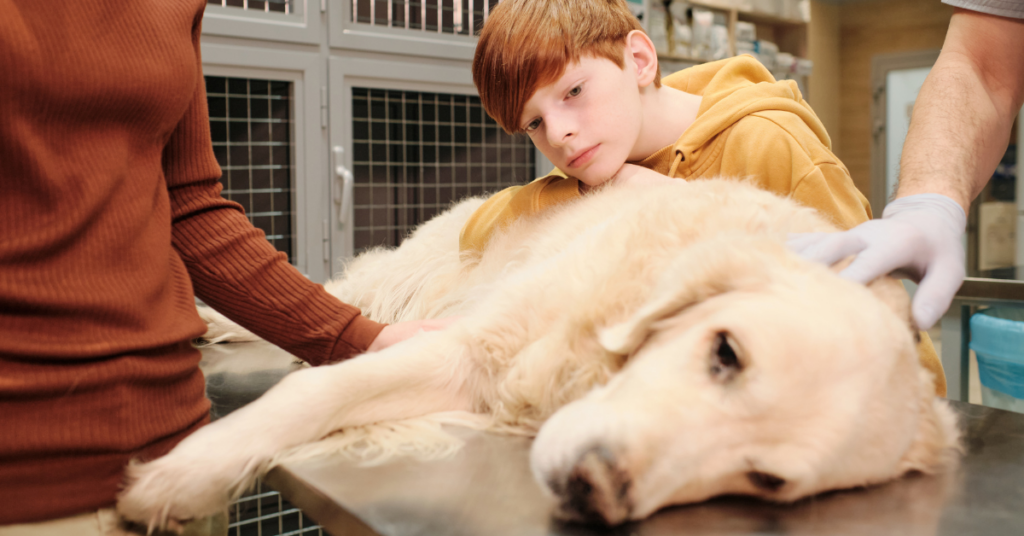
The treatment for the mucus in a dog’s poop depends on why the dog has acquired this disease. For example, for parasites or bacteria, or other problems, deworming medicines should be given, or other measures should be taken to cure the exact problem.
In many cases, to treat colitis, there is a special diet consisting mainly of high-fiber food, and sometimes there are changes in the diet of your dog that can treat the issues that your dog is facing.
Also, some allergens that are responsible for causing mucus in your dog’s poop should get removed from your dog’s diet so that you can treat your dog.
What is The Question to Ask the Vet for This Condition?
Firstly you should ask the veterinarian about the side effects of the medications you will give your dog.
Don’t forget to ask the vet what to do in emergencies, like when he is not available or whom to consider at that time. Always give the correct information to the vet about all the problems you find in your dog.
Conclusion
You can witness mucus in your dog’s poop for many reasons. However, it would be best if you were careful with the reasons, visit the veterinarian and get treatment as the vet suggests.
Remember, your dog can have many issues regarding its health, and you as a pet owner should take the responsibility of taking care of your vet. Visit the veterinarian and ask him about all your possible doubts, and you are all set to live a happy life with your pet.
For mucus-filled food, you can give treatment at home also; if the condition is not that serious and the dog is behaving normally but remember to inform your veterinarian about this whenever you visit.
Meet Madison Phillips, your compassionate guide to pet well-being. With experience from VCA Animal Hospitals and Laxton Vet Clinics Bellaire Inc. Madison honed her skills and embraced the balance of medical expertise and compassion, through her articles, she simplifies pet care, whether you’re a newbie or an experienced pet parent.

